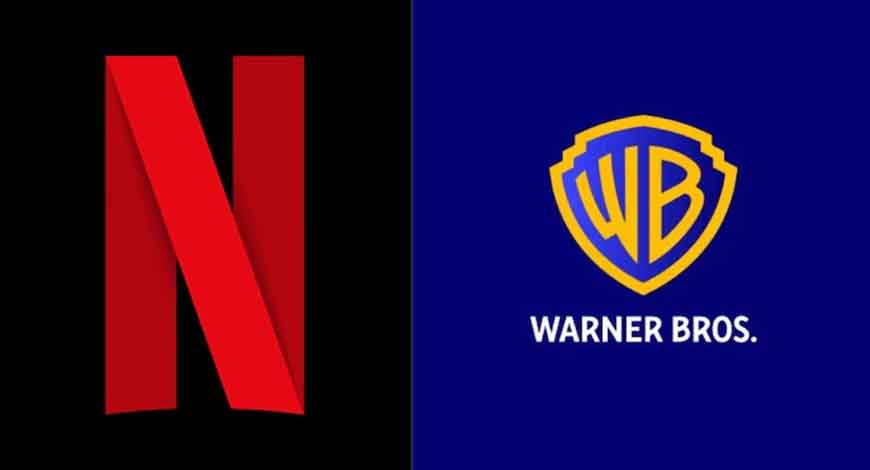Netflix is said to be preparing to bid for Warner Bros Discovery, a major Hollywood studio with a vast library of films and TV shows, a move that could significantly impact the future of the entertainment industry, including in India.
Popular movies from the DC Comics franchise and HBO shows such as Game of Thrones, currently split between different networks, could possibly come to Netflix, helping it strengthen its hold over premium, urban viewers. Moreover, this could result in opportunities for distribution while creating spin-offs and sequels. However, eventual success would still depend on pricing and localisation strategies.
Netflix and Warner Bros Discovery did not respond to Mint’s queries on the impact of this possible acquisition on the Indian market.
In 2021, AT&T Inc. and Discovery Inc., agreed to combine WarnerMedia’s premium entertainment, sports and news assets with Discovery’s leading nonfiction and international entertainment and sports businesses to create a standalone global entertainment company.
Since then, Warner Bros has indefinitely delayed the launch of its streaming app HBO Max in India and has instead licensed content to JioCinema (now JioHotstar).
It has focused on programming a combination of global and local content, aiming at 3,500-4,000 hours in 2025 for its linear TV channel besides discovery+, the OTT platform it operates in India.
“If the acquisition goes through, the biggest change for India will be the content flow,” said Charu Malhotra, managing director and co-founder, Primus Partners, a management consultancy firm. “That is a big deal, because in India a lot of that content is still split between different TV channels, local OTTs and streaming bundles.”
The opportunity would be that more premium titles could help attract subscribers here, maybe even result in local spin-offs tied to big franchises. However, India is a price-sensitive, regional market. People here don’t sign up to Netflix just for a library of old Warner titles; they look for local shows, sports and regional films.
Reshuffling distribution
“So the impact here would depend on how Netflix uses the content. If they keep everything exclusive, it could help them pull in some premium subscribers in metros. If they license to TV and other OTTs, they make extra money. Either way, the Indian story would be less about antitrust and more about how distribution deals get reshuffled,” Malhotra said.
Rajat Agrawal, chief operating officer and director of Ultra Media & Entertainment Group, agreed that Warner Bros Discovery’s extensive content library would significantly enhance Netflix’s content offerings in India.
“With Warner Bros Discovery’s existing partnerships and production capabilities in India, Netflix could leverage these to produce more localised content, catering to India’s diverse audience preferences. Netflix might also utilise Warner Bros Discovery’s linear TV channels, like Discovery Channel and Animal Planet, to promote its content and reach a broader audience. The acquisition would likely intensify competition in India’s OTT market, potentially leading to more aggressive pricing strategies and innovative content offerings from other players,” Agrawal added.
Further, more content production and partnerships could lead to job creation in the Indian media and entertainment sector. This acquisition might also accelerate the growth of India’s OTT market, driving innovation and investment in the sector, Agrawal pointed out.
Experts said a close example to the possible Netflix-Warner deal would be Amazon’s acquisition of film and TV production and distribution house Metro-Goldwyn-Mayer (MGM) for $8.45 billion in March 2022. Amazon bought MGM mainly for franchises such as James Bond and a giant library.
With this, Amazon got more content to play with, Malhotra said, but it didn’t transform Prime Video overnight. It took time and even today, MGM titles are mixed into a broader content strategy. The lesson is that owning a famous studio helps, but platforms still need fresh hits and local programming.
“Just buying a catalogue doesn’t guarantee a wave of new subscribers, especially in a market like India where people care more about local originals than old Hollywood films,” she pointed out.
“(But) in India and other emerging markets, success hinges on addressing lower ARPU (average revenue per user), diverse language needs, and regulatory challenges through localisation, affordable pricing, and hybrid TV or OTT strategies,” said Mahesh K Sharma, president – strategic partnerships, Chaupal, a platform specializing in Punjabi, Haryanvi and Bhojpuri content. LiveMint
